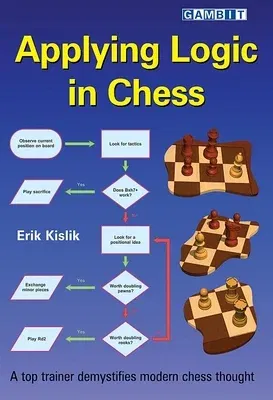Shortlisted for the FIDE Book of the Year Award
Is chess a logical game? What constitutes an advantage in chess? How can
we set problems and create psychologically difficult situations for the
opponent? These are big questions, and Erik Kislik tackles them and
others head-on in this thought-provoking, thoroughly modern, and
original work.
He answers the first of those questions with a resounding 'yes!'. His
assessments focus on concrete points: pawn-structure, material imbalance
and compensation. Even though the analytical proofs may be complex, he
repeatedly shows that these elements are the keys to evaluating
positions and forming plans.
As the trainer of players ranging from high-level grandmasters to
average club-players, Kislik is very strong on providing practical
guidance on topics such as how best to use chess software, choosing
hardware, getting psychologically ready for a game and preparing for
specific opponents. He is always willing to boldly state his views, even
when they run contrary to conventional chess wisdom.
"I was excited by this book because of the way all of the ideas are
intertwined and you get very concrete advice ... Everything is
applicable and it is easy to see how it applies to the real world." -
from the Foreword by GM Hjörvar Steinn Gretarsson.

